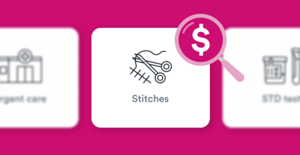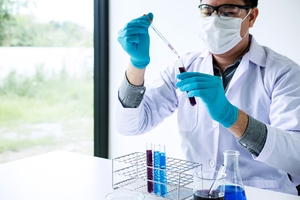A1C test
in North Carolina
Own a clinic? Add your location.
Help patients book appointments with you on Solv. It's free!
19 instant-book locations

Novant Health- GoHealth Urgent Care, Arboretum
Novant Health- GoHealth Urgent Care

AFC Urgent Care, Monroe Rd.
AFC Urgent Care

AFC Urgent Care, South West Charlotte
AFC Urgent Care

AFC Urgent Care, South Charlotte
AFC Urgent Care

AFC Urgent Care, Ballantyne
AFC Urgent Care

AFC Urgent Care, Huntersville
AFC Urgent Care

AFC Urgent Care, Indian Trail
AFC Urgent Care

Novant Health- GoHealth Urgent Care, Huntersville
Novant Health- GoHealth Urgent Care

Broken To Better Urgent Care, Fort Mill
Broken To Better Urgent Care

Novant Health- GoHealth Urgent Care, Poplar Tent
Novant Health- GoHealth Urgent Care

Novant Health- Gohealth Urgent Care, Indian Trail
Novant Health- Gohealth Urgent Care

AFC Urgent Care, Gastonia
AFC Urgent Care
Broken to Better Urgent Care, Rock Hill
Broken to Better Urgent Care

AFC Urgent Care, Mooresville
AFC Urgent Care

Carolina Plus Urgent Care, Rock Hill
Carolina Plus Urgent Care

Labcorp
Labcorp
Self-pay pricing
Clear self-pay prices
No more surprise bills. Solv is committed to making getting healthcare as easy as buying groceries at the store, including knowing the price of care upfront.

Quest Diagnostics
Quest Diagnostics
Self-pay pricing
Clear self-pay prices
No more surprise bills. Solv is committed to making getting healthcare as easy as buying groceries at the store, including knowing the price of care upfront.

Self-pay pricing
Clear self-pay prices
No more surprise bills. Solv is committed to making getting healthcare as easy as buying groceries at the store, including knowing the price of care upfront.

Self-pay pricing
Clear self-pay prices
No more surprise bills. Solv is committed to making getting healthcare as easy as buying groceries at the store, including knowing the price of care upfront.

Self-pay pricing
Clear self-pay prices
No more surprise bills. Solv is committed to making getting healthcare as easy as buying groceries at the store, including knowing the price of care upfront.
Own a clinic? Add your location.
Help patients book appointments with you on Solv. It's free!
North Carolina A1C Testing
One out of every ten Americans has diabetes, while one out of every three persons in the United States has prediabetes. Diabetes is a long-term health problem that impairs your body's capacity to convert food into energy. The body's major source of energy is blood glucose, sometimes known as sugar. When your blood sugar rises — generally after you eat — your pancreas releases an insulin-like hormone. Insulin aids in the transport of glucose into your cells, where it can be utilized for energy.
Insulin resistance occurs when your body either does not create enough insulin or does not respond to insulin as it should when you have diabetes. As a result, there is an excess of sugar in your blood, which can lead to major health issues over time. Nerve damage, kidney damage, eye damage, skin issues, and poor wound healing are all complications of uncontrolled diabetes. Diabetes patients are more likely to experience hearing loss and despair. They're also more likely to get heart disease and dementia.
It's critical to keep track of and manage your blood sugar levels if you have diabetes or prediabetes. Blood glucose testing should be done on a regular basis. A blood glucose test, on the other hand, only shows your blood sugar at a specific point in time. Regular A1C testing are also important for getting a more accurate picture of your average blood sugar levels over time. If you have prediabetes, you should get an A1C test at least once a year. If you have diabetes, your doctor will probably recommend an A1C test every three months to confirm that your therapy is working well.
A1C Test FAQs
What is an A1C test?
A1C is a blood test that determines your average blood sugar level over the previous two to three months. It's commonly used to diagnose both type 1 and type 2 diabetes, as well as to track how well people with diabetes are responding to therapy. The test determines the percentage of sugar-coated hemoglobin proteins in the blood. The higher your A1C, the greater your risk of diabetes and diabetes-related problems.
How much do A1C tests cost?
A1C tests are reasonably priced and are frequently available at pharmacies and walk-in clinics. A1C testing may be available for $30 or less at some locations. You may not have to spend anything for an A1C test if you have health insurance.
Does insurance cover A1C testing?
A1C testing is frequently covered by insurance. There may, however, be certain limitations. They may, for example, only cover the cost of the test if you are later diagnosed with type 1 or type 2 diabetes. Alternatively, the test may only be covered once every three months. Call your insurance carrier or check your plan benefits on their website to find out exactly what is covered under your policy.
Where should I get an A1C test?
A1C tests are available at many pharmacies, as well as doctor's offices, health clinics, and urgent care centers. Although some clinics and pharmacies provide walk-in A1C testing, it's best to schedule one ahead of time to avoid long lines. If you are diagnosed with diabetes, it is also recommended to get your A1C test from a healthcare specialist who can prescribe any necessary drugs or assist you in developing a treatment plan.
How long does it take to get A1C test results?
Your findings may be available right away, or they may take up to a week, depending on where you had the test. Some doctors' offices can conduct the test results in-house and provide you with the findings during the same visit. If your blood is sent to a lab for analysis, the findings may take a few days to a week to arrive.
How do A1C tests work?
The hemoglobin in your blood is measured by A1C testing. Hemoglobin is a protein that transports oxygen around your body. When glucose is present in the bloodstream, it can bind to hemoglobin. When glucose binds to hemoglobin, it tends to stay there for the duration of the hemoglobin's lifespan, which is about 120 days. The A1C test determines the percentage of glycated hemoglobin in your blood, or hemoglobin that has glucose attached to it.
What is hemoglobin A1C in a blood test?
The percentage of glycated hemoglobin in your blood is measured by hemoglobin A1C. A1C levels of 5.7 percent or below are considered normal. If your A1C score is 5.7 percent to 6.4 percent, you have prediabetes, which means your blood sugar is higher than it should be but not high enough to be diagnosed with diabetes. Diabetes is diagnosed when the A1C level is 6.5 percent or higher.
Do I need to see a doctor before getting an A1C test?
Before receiving an A1C test, you do not need to see a doctor. The A1C test is a quick blood test that takes only a few minutes to complete. There is no need to fast or do anything else to prepare for the test.
How can I book an A1C test on Solv?
Solv makes it simple to schedule an A1C test. Simply type "A1C test" into our website's search bar. You have the option of using your existing location or entering a new one. After that, press the search button. You'll be given a list of nearby providers as well as appointment times. To book an appointment, select a time and place and input your details.
Should I try at home A1C testing?
A1C tests are available for use at home and are generally confirmed to be accurate. A1C home test kits necessitate the collection of a blood sample by the user. The procedure is identical to how you would test your blood glucose levels. If you haven't been diagnosed with diabetes or prediabetes, however, you should schedule your A1C test with a healthcare professional who can prescribe any necessary medications and assist you in developing a treatment plan if necessary.

Updated on Jan 25, 2025
Solv has strict sourcing guidelines and relies on peer-reviewed studies, academic research institutions, and medical associations. We avoid using tertiary references.
Related searches
DOT Exam in North Carolina
Ear Wax Removal in North Carolina
Physical Exam in North Carolina
Sports Physicals in North Carolina
A1C Test in North Carolina
Allergy Testing in North Carolina
Basic Metabolic Panel in North Carolina
CMP Test in North Carolina
COVID-19 Antibody Test in North Carolina
Diabetes Test in North Carolina
Diagnostic Test in North Carolina
Glucose Test in North Carolina
H Pylori Test in North Carolina
Hepatitis test in North Carolina
Mono Test in North Carolina
Pregnancy Test in North Carolina
RSV Test in North Carolina
STD Testing in North Carolina
Strep Test in North Carolina
TB Test in North Carolina
Thyroid Test in North Carolina
Vitamin D Test in North Carolina
Everyday Healthcare, Simplified
Expert advice to help you live your best life





